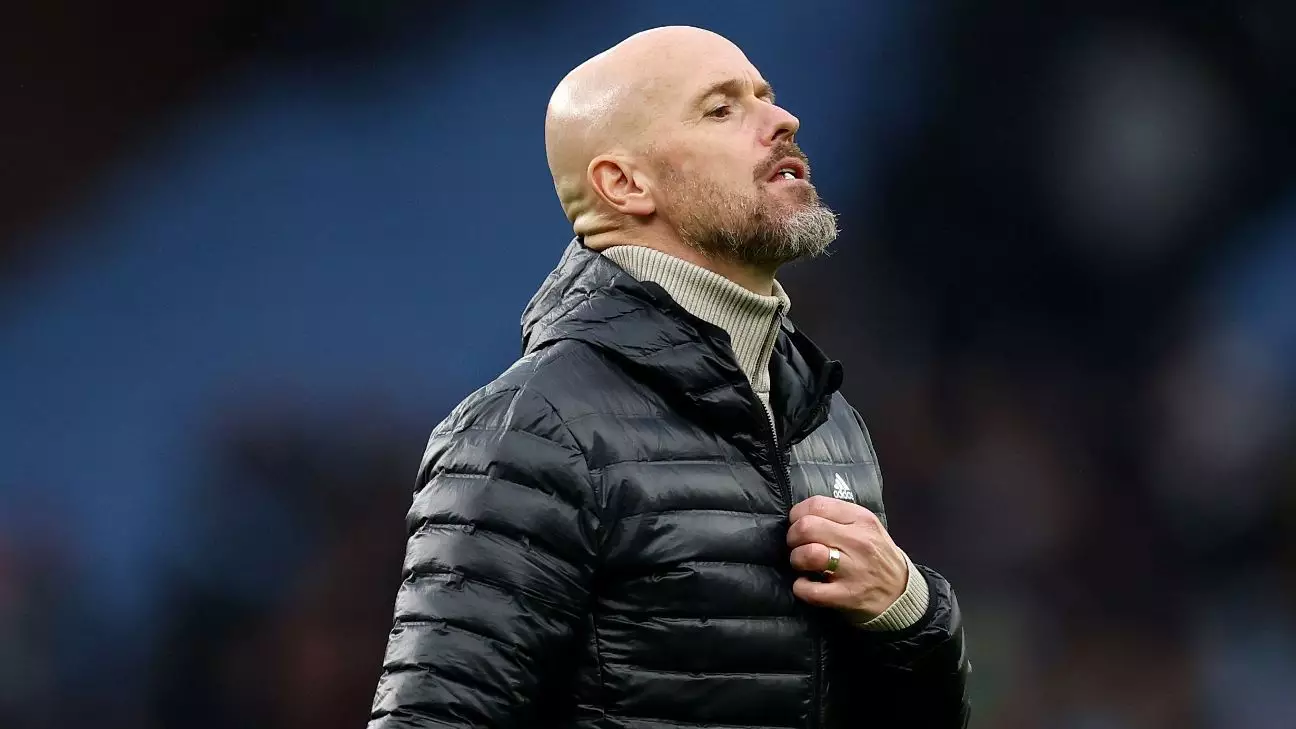Manchester United’s current season can be characterized by a significant struggle, primarily in their ability to convert opportunities into goals. With only five goals in their first seven Premier League matches, the team finds itself languishing near the bottom of the league’s scoring chart. This dismal goal tally marks the club’s worst start to a campaign since the 1989-90 season, a statistic that fans and analysts alike are concerned about. Following a recent 0-0 draw against Aston Villa, Erik ten Hag, the manager, expressed the pressing need for improvement, particularly in the offensive third.
The fact that Manchester United has gone three league fixtures without a goal is alarming, given the club’s storied history of attacking football. Under Ten Hag’s guidance, there was optimism for a tactical overhaul and revival, yet the current tally of draws and lack of scoring certainly dampens that enthusiasm. Ten Hag’s somber acknowledgment of the club’s lack of output speaks to a wider systemic issue within the team—one that demands an immediate solution.
Despite the presence of several talented attacking players, Manchester United has struggled to find the back of the net consistently. In his post-match comments, Ten Hag mentioned the potential return of Rasmus Højlund, highlighting the significance of this player in boosting the team’s attacking options. However, the frustrations of United’s supporters lie not just with injuries; there’s an evident gap in converting chances. While the manager espouses a belief in his roster, one has to question the effectiveness of their current strategies.
In games where they have created numerous opportunities but failed to capitalize, the issue may extend beyond a mere lack of clinical finishing. It prompts a critical reflection on their overall attacking patterns and the synergy between players. Marcus Rashford and Alejandro Garnacho have shown flashes of brilliance, yet the inconsistency in performance means that the team frequently resembles a set of discordant parts rather than a cohesive unit working towards a common goal.
On a more positive note, Ten Hag has pointed out the team’s defensive resilience. The trio of clean sheets in away games attests to a marked improvement in defensive coherence and structure. The manager praised the squad’s organization and camaraderie, which have helped mitigate the impact of their offensive woes. Indeed, achieving defensive stability could serve as a foundation upon which attacking performance can be incrementally built.
Clean sheets in three consecutive away matches suggest that the defensive line is beginning to gel, fostering a level of confidence that can be critical during tough spells. Ten Hag emphasized the need for a united front, prioritizing defensive fundamentals, which shows promise for the team’s future progression as they work to resolve their goal drought.
Moreover, the presence of minority owner Sir Jim Ratcliffe in the stands on match day has fueled rumors surrounding Ten Hag’s job security. The manager, however, has been resolute in asserting that he feels supported by the board. He underscored the importance of patience and belief in a long-term vision, suggesting that they are all aligned towards achieving overarching goals. This plea for unity and understanding is essential as the club navigates a particularly challenging start.
The path ahead for Manchester United requires a balanced approach—while it’s crucial to reinforce the existing defensive framework, the urgency to enhance the attacking capabilities cannot be overlooked. With the manager firmly at the helm and the support of the ownership, the expectation now rests on this group of players to rediscover their scoring touch. It remains to be seen how quickly these adjustments can translate into tangible improvements and relieve the mounting pressure.
Manchester United’s early season malaise highlights both systemic issues and opportunities for growth. As they prepare for the next run of fixtures, the focus will undoubtedly be on improving their offensive output while maintaining the defensive solidity they have begun to establish. The road to recovery may be tough, but with a dedicated manager, a talented squad, and a committed board, there is hope for revitalization as they aim to reclaim their place among the Premier League elite. The future is uncertain, but potential abounds—a blend of potential that must be harnessed effectively.

